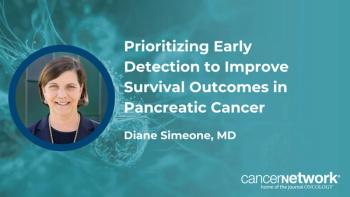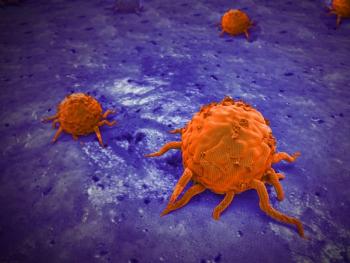
Expert Highlights Caution for Chemo Substitutions for Gynecologic Cancers
Guidelines from the Society of Gynecologic Oncology may help with managing the ongoing chemotherapy shortage in the treatment of patients with gynecologic cancers, according to Brian Slomovitz, MD, MS, FACOG.
Brian Slomovitz, MD, MS, FACOG, spoke with CancerNetwork® about the potential impact of substituting platinum-based chemotherapy for other platinum-based agents in the treatment of those with gynecologic cancers during the ongoing chemotherapy shortage in the United States.
Slomovitz, a gynecologic oncologist, director of Gynecologic Oncology, and co-chair of the Cancer Research Committee at Mount Sinai Medical Center in Miami Beach, Florida and a professor of Obstetrics and Gynecology at Florida International University, emphasized caution when making the decision to switch from carboplatin to cisplatin, or vice versa, as it is unclear how the change may impact patient outcomes or quality of life. He did note that the substitution does make sense in theory, but also stated it’s important to remember that they’re different agents.
Additionally, he spoke about how guidelines from organizations such as the Society of Gynecologic Oncology (SGO) may help in guiding treatment decision-making during the platinum-based chemotherapy shortages.
Transcript:
The quality of life definitely [is impacted] for a lot of perspectives, because the [adverse] effect profiles can be different and things like that. We've had to make some changes. We've written some consensus pieces on that, part of it with the Society of Gynecologic Oncology [SGO], which are nice guides of what to do in the setting. But there is some unknown. When we've studied thousands of patients for certain diseases like ovarian cancer with carboplatin, and then we say, ‘Hey, let's switch. Let's give cisplatin.’ Theoretically, it makes sense. But the bottom line is they're different drugs. I don't want to say to keep our fingers crossed; it's a little bit more scientific than that. But we're cautious that the efficacy is going to be the same.
Reference
SGO statement: carboplatin and cisplatin shortages. News release. Society of Gynecologic Oncology. April 21, 2023. Accessed August 7, 2023. https://tinyurl.com/y3dcmdk4
Newsletter
Stay up to date on recent advances in the multidisciplinary approach to cancer.



















































